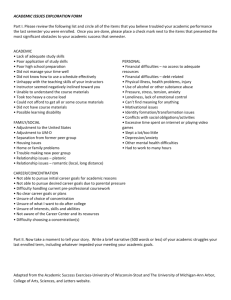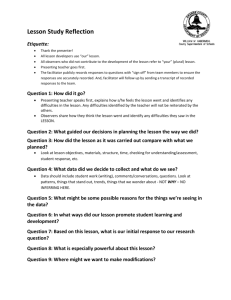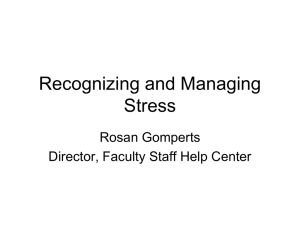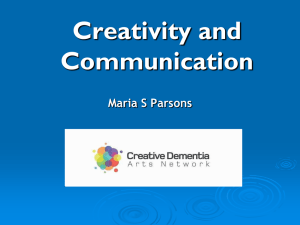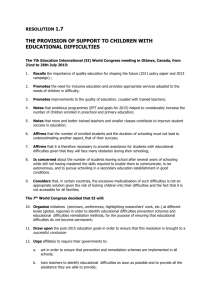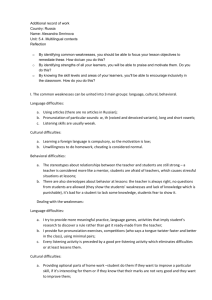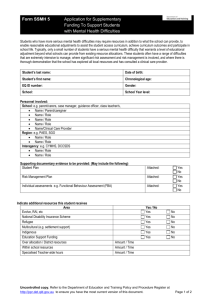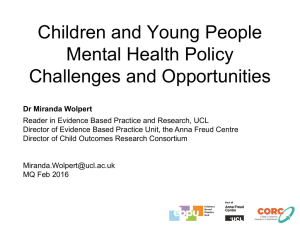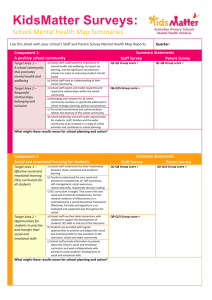Mental Health Difficulties
advertisement
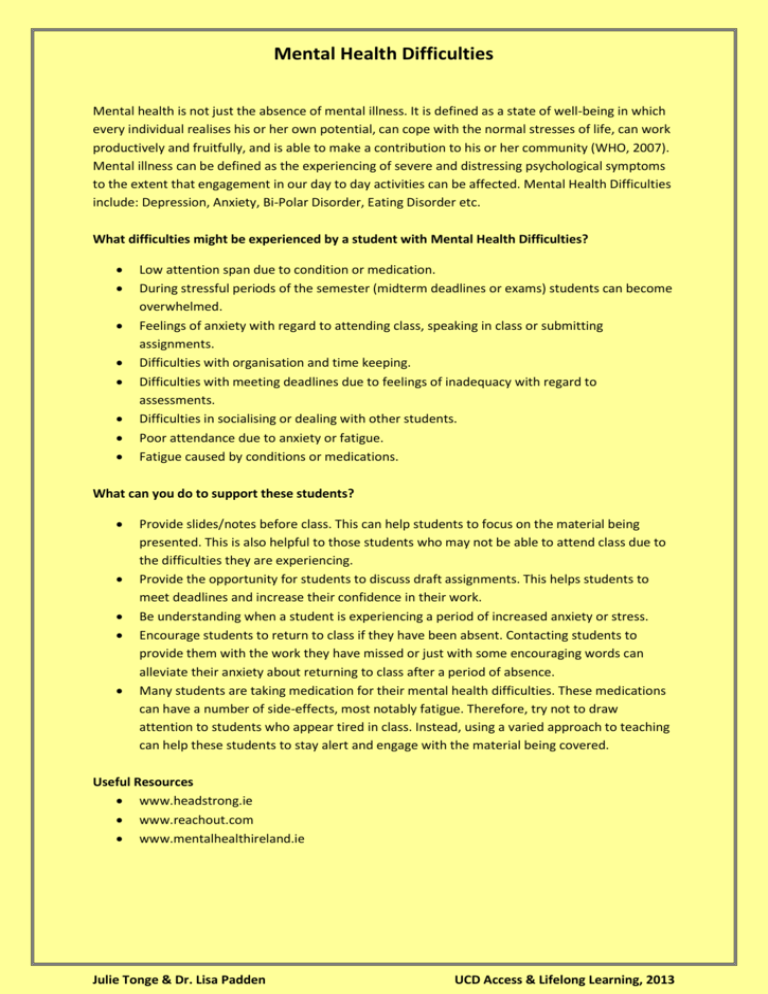
Mental Health Difficulties Mental health is not just the absence of mental illness. It is defined as a state of well-being in which every individual realises his or her own potential, can cope with the normal stresses of life, can work productively and fruitfully, and is able to make a contribution to his or her community (WHO, 2007). Mental illness can be defined as the experiencing of severe and distressing psychological symptoms to the extent that engagement in our day to day activities can be affected. Mental Health Difficulties include: Depression, Anxiety, Bi-Polar Disorder, Eating Disorder etc. What difficulties might be experienced by a student with Mental Health Difficulties? Low attention span due to condition or medication. During stressful periods of the semester (midterm deadlines or exams) students can become overwhelmed. Feelings of anxiety with regard to attending class, speaking in class or submitting assignments. Difficulties with organisation and time keeping. Difficulties with meeting deadlines due to feelings of inadequacy with regard to assessments. Difficulties in socialising or dealing with other students. Poor attendance due to anxiety or fatigue. Fatigue caused by conditions or medications. What can you do to support these students? Provide slides/notes before class. This can help students to focus on the material being presented. This is also helpful to those students who may not be able to attend class due to the difficulties they are experiencing. Provide the opportunity for students to discuss draft assignments. This helps students to meet deadlines and increase their confidence in their work. Be understanding when a student is experiencing a period of increased anxiety or stress. Encourage students to return to class if they have been absent. Contacting students to provide them with the work they have missed or just with some encouraging words can alleviate their anxiety about returning to class after a period of absence. Many students are taking medication for their mental health difficulties. These medications can have a number of side-effects, most notably fatigue. Therefore, try not to draw attention to students who appear tired in class. Instead, using a varied approach to teaching can help these students to stay alert and engage with the material being covered. Useful Resources www.headstrong.ie www.reachout.com www.mentalhealthireland.ie Julie Tonge & Dr. Lisa Padden UCD Access & Lifelong Learning, 2013
